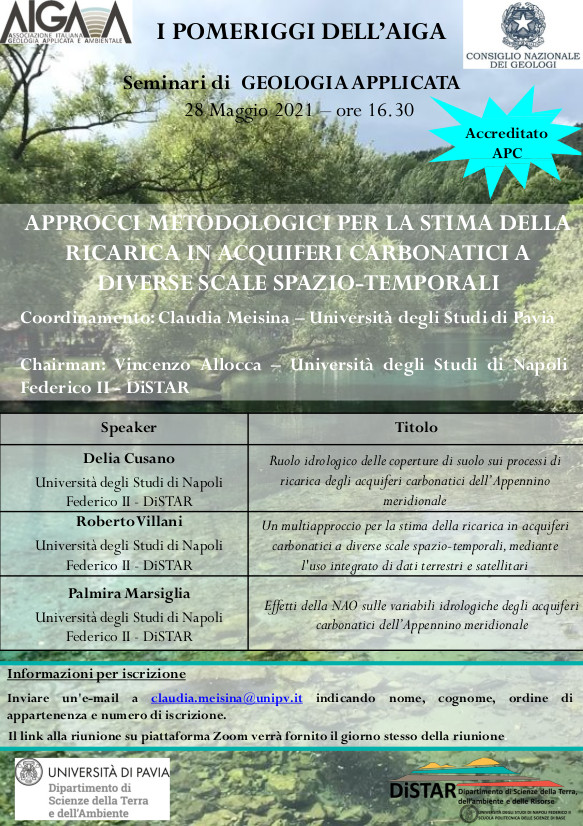28 maggio 2021 ore 16:30
APPROCCI METODOLOGICI PER LA STIMA DELLA RICARICA IN ACQUIFERI CARBONATICI A DIVERSE SCALE SPAZIO-TEMPORALI
Chairperson: Vincenzo Allocca, Università degli Studi di Napoli Federico II - DiSTAR.
Il video dell’evento e le presentazioni sono disponibili per i soci AIGA nell’area riservata di questa sezione.

|